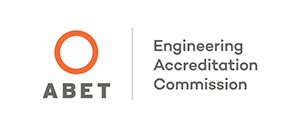Student Learning Outcomes
Program Educational Objectives
Our alumni will show evidence of integrating a Christian worldview into their life and vocation by following the example of Christ in being an articulate, ethical and empowered servant leader. This implies being aware of and meeting the needs of humanity by doing most if not all of the following:
- serving community and faith based organizations,
- serving professional societies,
- and serving employers by being a steward of time, competencies and resources.
Our alumni will show competence to apply fundamental engineering concepts in a professional setting by active participation in professional engineering activities. These activities will involve some of the following: creating, researching, innovating, designing, building, testing, inspecting, evaluating, estimating, planning, allocating, forecasting, selling, educating, communicating and collaborating.
Our alumni will continue to develop professionally through involvement in post-graduate learning activities. These activities would include participating in training or continued education, receiving a post graduate degree, attending and or delivering presentations, papers or posters at professional conferences, taking and passing the EIT and PE exam, and/or attending or delivering presentations at professional society meetings or in academic and educational settings.
Our alumni will show evidence of success in at least one of a variety of post graduate experiences. These experiences include but are not limited to employment in industry, public service, education, missions/NGO's, and/or participation in graduate school, and success could be demonstrated through achievements such as promotion, completion of an advanced degree, and awards.
Student Learning Outcomes
CBU mechanical engineering graduates are expected to:
- An ability to identify, formulate, and solve complex engineering problems by applying principles of engineering, science, and mathematics.
- An ability to apply engineering design to produce solutions that meet specified needs with consideration of public health, safety, and welfare, as well as global, cultural, social, environmental, and economic factors
- An ability to communicate effectively with a range of audiences.
- An ability to recognize ethical and professional responsibilities in engineering situations and make informed judgments, which must consider the impact of engineering solutions in global, economic, environmental, and societal contexts.
- An ability to function effectively on a team whose members together provide leadership, create a collaborative and inclusive environment, establish goals, plan tasks, and meet objectives.
- An ability to develop and conduct appropriate experimentation, analyze and interpret data, and use engineering judgment to draw conclusions.
- An ability to acquire and apply new knowledge as needed, using appropriate learning strategies.
- An ability to articulate a Christian worldview on personal, professional, technical, and societal issues
- An ability to develop attributes of leadership in an innovation-driven environment

